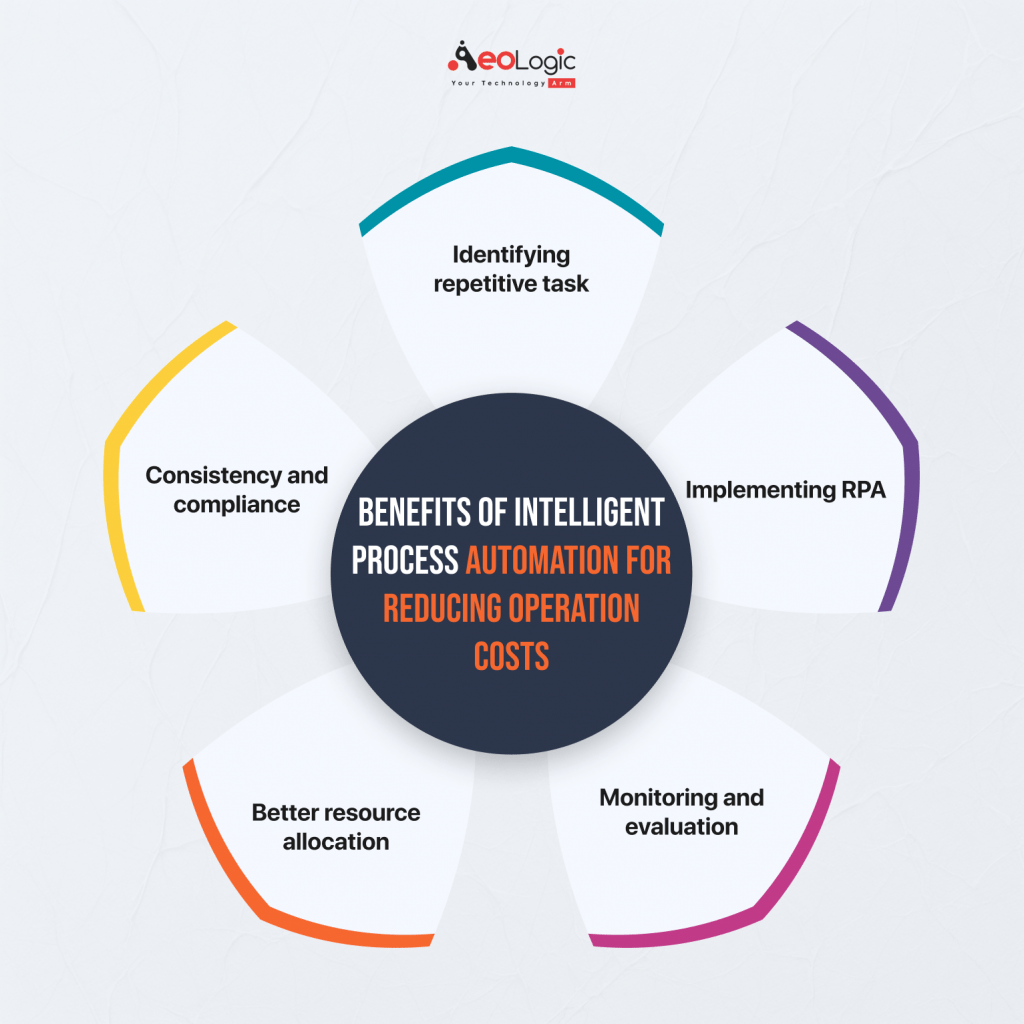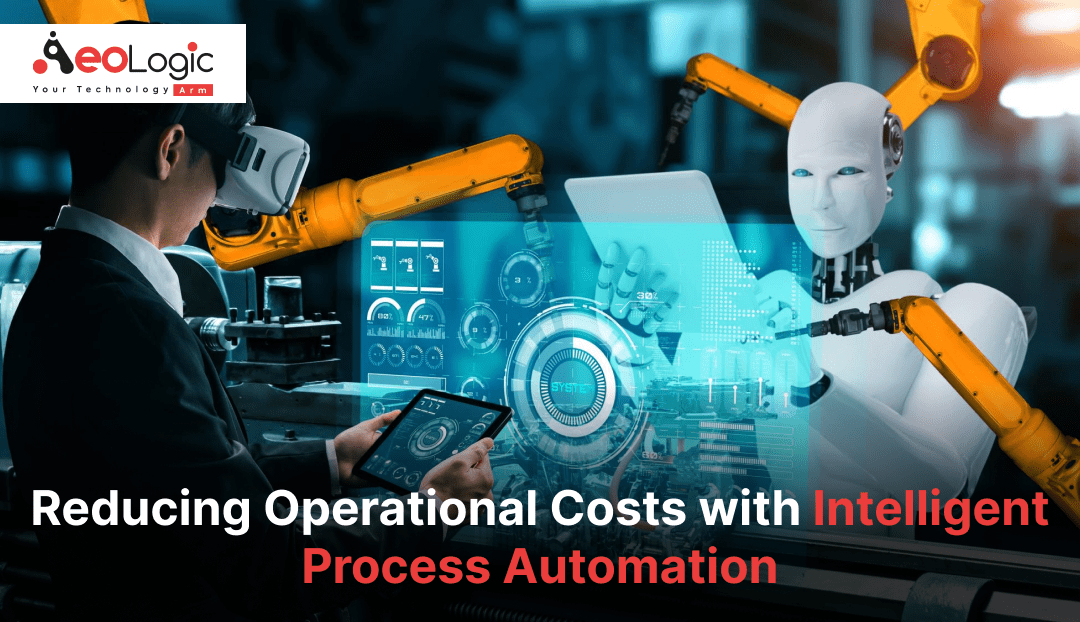Every industry, and organizations, have a lot of operations throughout their supply chain that take too much operational costs. It needs many workers, resources, machinery, and solutions to perform operations inside an industry. This is generally the conventional method of performing operations. Maybe organizations are making profits with the conventional tactics to perform operations but surely they pay a lot of operational costs that can be lowered or reduced with any powerful and potential tool.
Automation solutions have the capability and potential to perform operations with ease and reduce operational costs for industries. With the integration of AI and a few others, technology with automation makes intelligent process automation more capable of performing operations efficiently. By optimizing repetitive operations and increasing productivity with technologies like robotic process automation (RPA) and artificial intelligence (AI), intelligent process automation (IPA) can drastically lower operating costs. Organizations can reduce errors and speed up response times by using chatbots for customer service, automating high-volume, manual activities, and deploying AI for predictive analytics.
Furthermore, staff training and ongoing process review guarantee seamless automation system migrations, which eventually result in lower costs and higher service quality.
Related Statistics
The global industrial automation market size was USD 213.53 billion in 2023, accounted for USD 233.81 billion in 2024, and is expected to reach around USD 529.16 billion by 2033, expanding at a CAGR of 9.5% from 2024 to 2033. Where the Intelligent Process Automation Market Size 2024 And Growth Rate. The intelligent process automation market size has grown rapidly in recent years. It will grow from $14.36 billion in 2023 to $16.38 billion in 2024 at a compound annual growth rate (CAGR) of 14.1%.
In this article, we will examine the role of intelligent process automation in reducing operation costs in industries. We will also see some other details like benefits, challenges, etc, and end the article with a concluding paragraph.
What is Intelligent Process Automation for Reducing Operation Costs?
Intelligent process automation (IPA) can be defined as the process of automating and optimizing business processes through the use of cutting-edge technology like robotic process automation (RPA), artificial intelligence (AI), and machine learning. Intelligent process automation can lower operating expenses by eliminating the need for manual intervention in repetitive operations like data entry and report generation.
By facilitating many benefits like real-time data analysis, increasing accuracy, and optimizing procedures, it boosts productivity. Also through AI-driven solutions, IPA can enhance client interactions, which will ultimately save businesses money and boost productivity. There are other benefits that we will see in brief in the upcoming paragraph.
Also Read: How AI-Powered Automation is Transforming Business Operations in 2025
Benefits of Intelligent Process Automation for Reducing Operation Costs

There are many benefits of intelligent process automation for reducing operation costs. Here are a few key benefits mentioned below.
Identifying repetitive task
There are many repetitive tasks within an organization that take a lot of time and unnecessary labor too. Artificial intelligence’s ability to analyze operations helps to identify repetitive tasks and automation can automate those tasks. This helps to reduce labor costs and also time to focus on more complex tasks.
Implementing RPA(Robotic Process Automation)
Robotic process automation is another beneficial thing that can be achieved with Intelligent process automation to reduce operational costs. Data input, invoice processing, and report production are examples of rule-based processes that can be automated with RPA.To reduce interruption, make sure RPA tools work in unison with current systems. This enables them to perform tasks more fast and with more accuracy to reduce unnecessary losses.

Monitoring and evaluation
With intelligent process automation, it is possible to monitor operations within an organization which leads to work on weak points. Artificial intelligence can analyze and evaluate process efficiency and let automation automatically focus on those weak points that need to be strengthened. This lets organizations skip unnecessary maintenance costs by detecting problems in early phases.
Better resource allocation
It is important to allocate resources at the right place instead of devoting all resources to a single place. Intelligent process automation enhances worker productivity by enabling more efficient use of human resources. This makes many tasks automated that cannot produce errors with automation and makes human workers focus on other tasks that are not repetitive.
Consistency and compliance
It is well said that consistency is the key to success and it should also be executed in organizations. With intelligent process automation, by ensuring compliance with standard operating procedures and regulatory standards, automated processes lower the risk of noncompliance. This helps to maintain consistency in productivity and also helps to reduce operations costs.
Also Read: The Impact of Industrial Automation on Sustainable Manufacturing
Challenges with Intelligent Process Automation
We have seen various benefits of intelligent process automation but there can be a few challenges too. Here are a few challenges mentioned below.
- Integration can be an issue as it is quite complex to establish seamless integration of IPA to the existing system. This needs expertise and some time to integrate properly.
- Some firms may find it difficult to adopt IPA technology due to the high upfront expenditures, which include software and training. So implementation cost can be another challenge too.
- We are here talking about reducing operational costs but if any organization cannot fully utilize this tool then there can be an increase in maintenance costs for this technology. So this can be a situation if it is otherwise.
Also Read: Why Custom AI Solutions Are the Future of Data Analysis and Reporting
Final Words
Intelligent process automation (IPA) offers organizations a significant chance to improve accuracy and efficiency while lowering operating expenses. Businesses may optimize resource allocation and enhance customer experiences by automating repetitive operations, using AI for decision-making, and optimizing workflows. Although there are a few challenges too such as integration, change management, and data quality exist where a strategic approach to implementation can mitigate these challenges with ease. Overall, adopting IPA not only results in considerable cost savings but also puts businesses in a position to be more flexible and competitive in a market that is becoming more and more dynamic.






